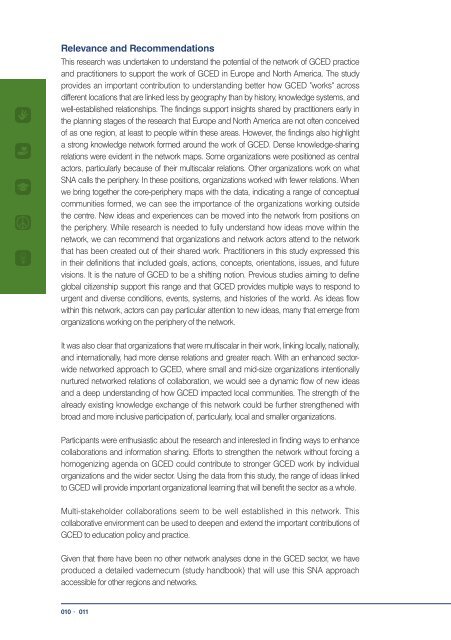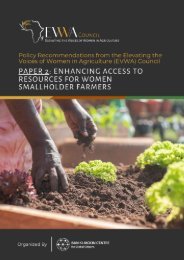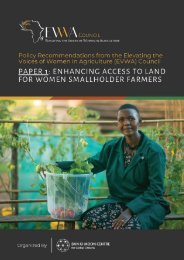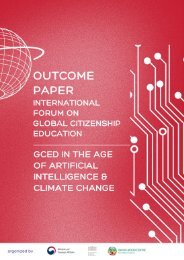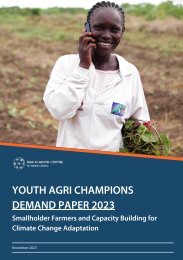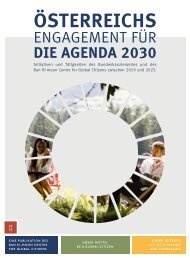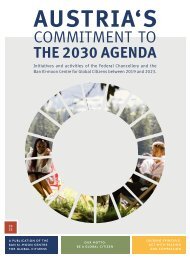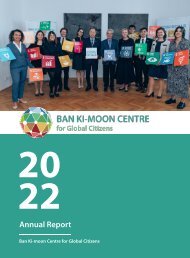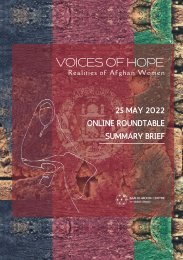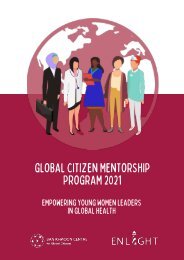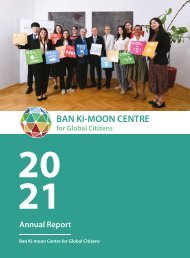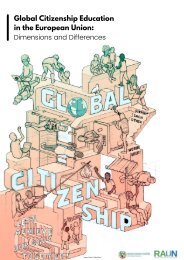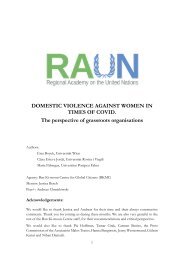Europe and North America Regional GCED Network
The report “Europe and North America Regional GCED Network” is based on a research project funded by Asia-Pacific Centre of Education for International Understanding (APCEIU) and Ban Ki-moon Centre for Global Citizens (BKMC) led by Lynette Shultz (Centre for Global Citizenship Education and Research, University of Alberta) and Massimiliano Tarozzi (International Research Centre on Global Citizenship Education, University of Bologna) as Principal Investigators. The research team was composed of Carrie Karsgaard and Carla Inguaggiato, with the support of Kester Muller and Francis Owusu.
The report “Europe and North America Regional GCED Network” is based on a research project funded by Asia-Pacific Centre of Education for International Understanding (APCEIU) and Ban Ki-moon Centre for Global Citizens (BKMC) led by Lynette Shultz (Centre for Global Citizenship Education and Research, University of Alberta) and Massimiliano Tarozzi (International Research Centre on Global Citizenship Education, University of Bologna) as Principal Investigators. The research team was composed of Carrie Karsgaard and Carla Inguaggiato, with the support of Kester Muller and Francis Owusu.
Create successful ePaper yourself
Turn your PDF publications into a flip-book with our unique Google optimized e-Paper software.
Relevance <strong>and</strong> Recommendations<br />
This research was undertaken to underst<strong>and</strong> the potential of the network of <strong>GCED</strong> practice<br />
<strong>and</strong> practitioners to support the work of <strong>GCED</strong> in <strong>Europe</strong> <strong>and</strong> <strong>North</strong> <strong>America</strong>. The study<br />
provides an important contribution to underst<strong>and</strong>ing better how <strong>GCED</strong> "works" across<br />
different locations that are linked less by geography than by history, knowledge systems, <strong>and</strong><br />
well-established relationships. The findings support insights shared by practitioners early in<br />
the planning stages of the research that <strong>Europe</strong> <strong>and</strong> <strong>North</strong> <strong>America</strong> are not often conceived<br />
of as one region, at least to people within these areas. However, the findings also highlight<br />
a strong knowledge network formed around the work of <strong>GCED</strong>. Dense knowledge-sharing<br />
relations were evident in the network maps. Some organizations were positioned as central<br />
actors, particularly because of their multiscalar relations. Other organizations work on what<br />
SNA calls the periphery. In these positions, organizations worked with fewer relations. When<br />
we bring together the core-periphery maps with the data, indicating a range of conceptual<br />
communities formed, we can see the importance of the organizations working outside<br />
the centre. New ideas <strong>and</strong> experiences can be moved into the network from positions on<br />
the periphery. While research is needed to fully underst<strong>and</strong> how ideas move within the<br />
network, we can recommend that organizations <strong>and</strong> network actors attend to the network<br />
that has been created out of their shared work. Practitioners in this study expressed this<br />
in their definitions that included goals, actions, concepts, orientations, issues, <strong>and</strong> future<br />
visions. It is the nature of <strong>GCED</strong> to be a shifting notion. Previous studies aiming to define<br />
global citizenship support this range <strong>and</strong> that <strong>GCED</strong> provides multiple ways to respond to<br />
urgent <strong>and</strong> diverse conditions, events, systems, <strong>and</strong> histories of the world. As ideas flow<br />
within this network, actors can pay particular attention to new ideas, many that emerge from<br />
organizations working on the periphery of the network.<br />
It was also clear that organizations that were multiscalar in their work, linking locally, nationally,<br />
<strong>and</strong> internationally, had more dense relations <strong>and</strong> greater reach. With an enhanced sectorwide<br />
networked approach to <strong>GCED</strong>, where small <strong>and</strong> mid-size organizations intentionally<br />
nurtured networked relations of collaboration, we would see a dynamic flow of new ideas<br />
<strong>and</strong> a deep underst<strong>and</strong>ing of how <strong>GCED</strong> impacted local communities. The strength of the<br />
already existing knowledge exchange of this network could be further strengthened with<br />
broad <strong>and</strong> more inclusive participation of, particularly, local <strong>and</strong> smaller organizations.<br />
Participants were enthusiastic about the research <strong>and</strong> interested in finding ways to enhance<br />
collaborations <strong>and</strong> information sharing. Efforts to strengthen the network without forcing a<br />
homogenizing agenda on <strong>GCED</strong> could contribute to stronger <strong>GCED</strong> work by individual<br />
organizations <strong>and</strong> the wider sector. Using the data from this study, the range of ideas linked<br />
to <strong>GCED</strong> will provide important organizational learning that will benefit the sector as a whole.<br />
Multi-stakeholder collaborations seem to be well established in this network. This<br />
collaborative environment can be used to deepen <strong>and</strong> extend the important contributions of<br />
<strong>GCED</strong> to education policy <strong>and</strong> practice.<br />
Given that there have been no other network analyses done in the <strong>GCED</strong> sector, we have<br />
produced a detailed vademecum (study h<strong>and</strong>book) that will use this SNA approach<br />
accessible for other regions <strong>and</strong> networks.<br />
010ㆍ 011


